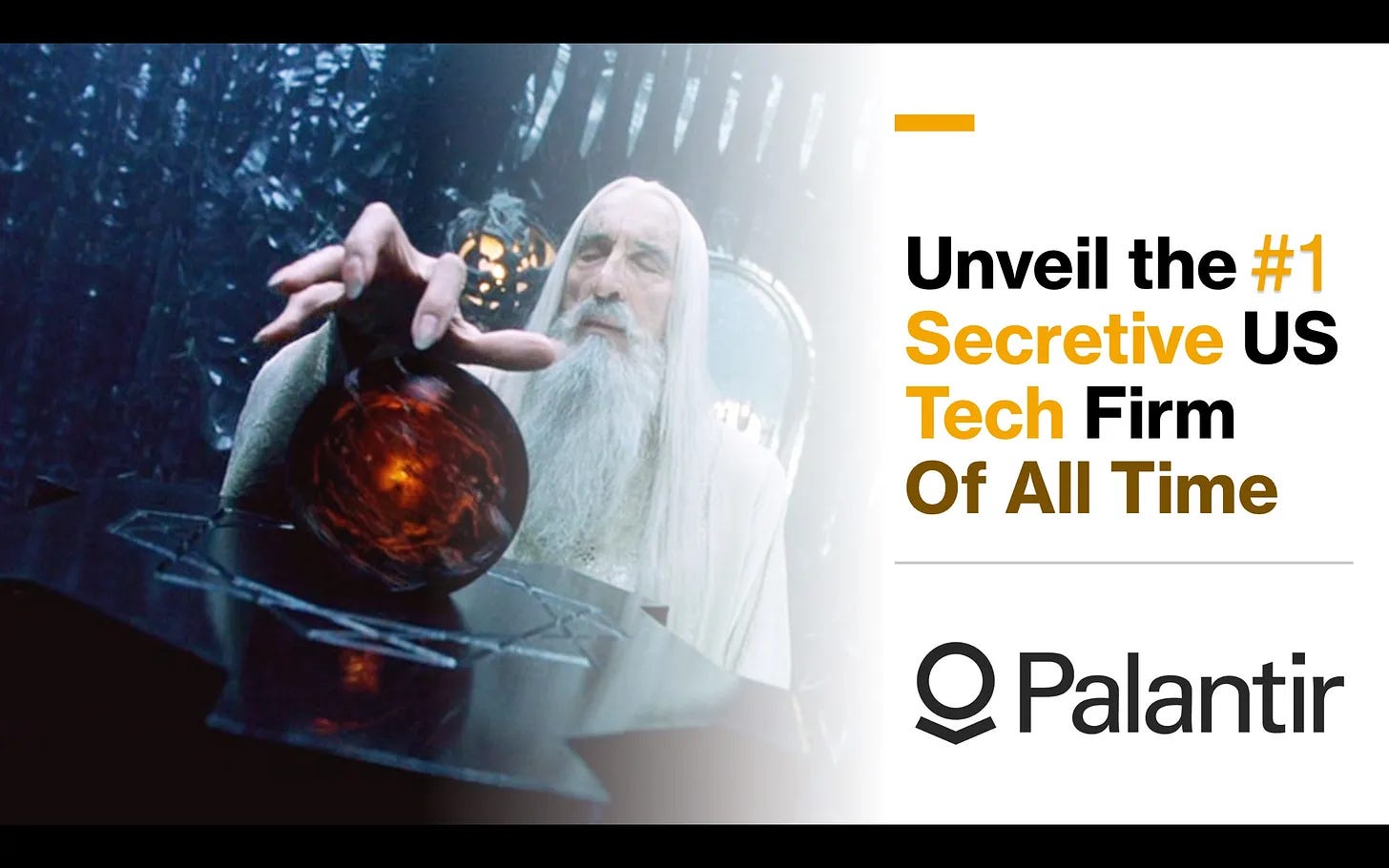I knew a guy once . . . when we were all going full speed ahead to resist George W. Bush’s military adventurism. This fella, for reasons I won’t go into because it would blow his privacy, was well-positioned enough as an advocate and well-spoken enough that he was in demand as a speaker. (No, not me.) Well-resourced groups of well-to-do people started booking him in venues all over the country, and even paying generous honoraria. He went from being a fairly nondescript man to being a minor celebrity.
One day, a mutual acquaintance ran into me and said, “Did you hear about _____?” I hadn’t, but as it turned out, _____ had gone off the rails in Southern California after an event, drinking heavily and snorting enough coke to kill a team of horses. He was arrested for public disorderly in the company of two-women-not-his-wife and further charged with resisting arrest.
When I debriefed with him some weeks later after he had a bit of clean time, he confessed, “It had all just gone to my head.”
He’d discovered the hard way that notoriety and some extra cash on hand could cloud one’s judgement in a major way. This isn’t the only story I know like this. Life in the fast lane and all that . . .
What happens to someone who was raised with the proverbial silver spoon in his m out, then went on to accumulate $23 billion? Who’s invited to stand alongside the Prez during inauguration?
Of course, we’ll be talking about Peter Thiel, but this applies to all the rich, famous, and powerful. How much power can they wield without that power creating world-historical character defects?
More to the point, how many people around them are willing to do what normal friends, family, and acquaintances do—that is, put them in check, challenge their errors, test their judgement, play devil’s advocate, refuse to co-sign their bullshit . . . all those things that others do to keep us on the rails of reality? It’s pretty obvious, isn’t it, that the constant reinforcement of self-regard and the illusion of omnipotence and omniscience will create not only distortions, by uncorrected distortions in the minds of the ultra-rich and powerful.
Peter Thiel is a particularly problematic person for me, because he claims some of the same playbooks. He says he was a longtime fan of Tolkien—me, too—a reader of René Girard—me, too—and now he’s put one of my lodestar’s names in his mouth—Ivan Illich—in conjunction with Thiel’s recent claims to have identified the antichrist. Thiel, in fact, gets every one of these people wrong—infamously so.
But there’s no one there to tell him, “You have this completely bass-akwards.”
Let’s just take note here at the outset, shall we, of the contradictions of atheistic Ayn Rand libertarianism—which Thiel claims, even as he now proselytizes for The Christofascist Church of Silicon Valley, aka the ACTS 17 Collective—and said “libertarian” founding Palantir, a company that’s trying to perfect the government Panpticon and establish once and for all the total surveillance society.
Thiel’s politics is adjacent to the alt-right with a robust strain of techno-utopianism. His cultural views align closely with fellow crackpot, Jordan Peterson, misidentifying liberal identity politics with a fictional creature called “cultural Marxism.” He shares the anti-feminist and authoritarian views of J.D. Vance—who likewise reads Tolkien and Girard wrong. He’s supported Donald Trump twice, and is one of the biggest proponents of Trump’s disastrous trade war with China. His “thought” aligns with neo-reactionaries Elon Musk and Curtis Yarvin, and he has an unhealthy attachment to conspiracy theories, the latest of which is the antichrist.
I was watching a bit of news yesterday, when they played a clip of Thiel claiming to cite Ivan Illich with regard to this antichrist, whereupon one of the right-wing commentators went on to do a dreadful exegesis of the Second Letter to the Thessalonians (or Thessalonikans, in my own NT, translated by Hart). This clip is what provoked me to write something on Thiel, who’s every appearance has the effect of a nails on a chalkboard.
For the record, this letter was likely not penned by Paul of Tarsus himself, but it’s in the canon, and so here is the passage in the second chapter from which so much has been rendered.
Now, brothers and sisters, we implore you—as regards the arrival of Lord Jesus the Anointed and our being gathered to him—That you neither be quickly shaken in mind, no disturbed by a spirit of discourse or a letter (purporting to be from us) to the effect that the Day of the Lord has come. By no means allow anyone to delude you that the apostasy would not come first, and the man of lawlessness—the son of perdition—to be revealed: This one who is an adversary, and who exalts himself over everything called a god or an object of worship, so as to seat himself in God’s Temple, proclaiming that he himself is a god. Do you not remember that, when I was still with you, I used to tell you these things? And now you know what restrains him, so that he may be revealed at his proper time. For the mystery of lawlessness [in early Latin translations, mysterium iniquitatus] is already operating; one alone is restraining it, right up until he [the lawless one] is taken out of the way. And then the lawless one will be revealed, whom the Lord will take away by the breath [or spirit] of his mouth, and will bring [the lawless one] to nothing by the revelation of his [the Lord’s] arrival: The [lawless] man whose arrival is brought about by the operation of the Accuser [the satan, aka the prosecutor, or arraigner], with all the power and with signs and marvels of falsehood, And with all the deceit of iniquity for those who are perishing, because they did not welcome the love of the truth so that they may be saved—And hence God sends them delusion’s operation, so that they believe the lie, So that all who did not have faith in the truth, but instead took pleasure in injustice, might be judged.
The translator here—David Bentley Hart—adds a footnote with regard to “the lawless one.”
Precisely who this “lawless one” was understood to be we do not know. He seems clearly modeled on some notorious precedents. The Selucid tyrant Antiochus IV Epiphanies (c. 215-164 BCE) had installed an idol in the Jerusalem Temple—perhaps Zeus, or perhaps Ba’al—and sacrificed swine to it. This is the Abomination of Desolation of which the book of Daniel speaks in veiled language. The Roman Emperor Caligula (12-42 CE) had also threatened to put an image of himself as Zeus in the Temple, but was assassinated before the plan was accomplished. Whatever the case, in later Christian generations the figure of the lawless one would be combined with the “antichrist” or “antichrists” of 1 and 2 John and the “beast” of Revelation to produce the legend of “the Antichrist” who will arise in the last days.
These later generations, to reiterate, transformed the original message into something other than the meaning of the author—a millenarian legend. With that on the table, then, let’s pivot to Illich and his remarks on the matter.
First of all, Illich said that “antichrist” is “a monstrously churchy term,” a further dismissal of the whole notion of The Antichrist of post-Scriptural legend. The text—and its Old Testament predecessors, which lived in the text among first century Christians—use the “lawless man” as the personification of a mystery (the mysterium iniquitatus, or mystery of iniquity). This text is the annunciation of that mystery, and for Illich, the mystery was how the Church itself “had gone pregnant with an evil that found no nesting place in the old Testament.” (New rules=new ways to break them.) Note that in the beginning of the above passage, the author is warning about a problem that was cropping up in the newly founded Christian communities in Eastern Mediterranea.
Says Illich, “This something, he insists, is mysterious and belongs to those things which only the initiated Christian can know. To outsiders who do not accept the divinity of the apparent rebel crucified by Pontius Pilate, it remains veiled.”
Illich goes on to criticize the service society—it’s an arcane and complex narrative that I can only commend to readers with its author—but not for its service per se—his is not a sociological or political critique. He’s decrying the ways in which this mystery has perverted the Gospels and Christian discipleship, in particular the ways in which the Church, in its alliance with power, has taken on an ever more depersonalized and juridical aspect. Antichrist, without the definite article, is a mystery within the church, and nothing to do with politics, except the manner in which it pulled the Church into the worldly juridical space through what Illich called “the criminalization of sin.”
Given that this is where it goes, it is particularly offensive to me, as a student of Illich for more than two decades, to see how the political right-wing has twisted Illich for its own purposes, to include their idiotic throne-and-altar restoration fantasies. This reactionary integralism would have been anathema to Illich.
The right’s “cultural Christianity,” their triumphalist fetishizing of Western civilization, their xenophobia, and their desire to restore a militant juridical Christendom are integral to Illich’s mystery of evil.
Illich’s first and most formative experience of ministry was working among poor immigrants in New York City, and he spent many of his further formative years working out of Cuernavaca, Mexico. He called Jesus an anarchist messiah, and denounced technoptimism in some of the most penetrating critiques of the last century.
Peter Thiel, keep Illich’s name out of your mouth!
For these self-important New Aryans to recruit Illich and the rest as support for their shallow criticisms of post-Enlightenment liberalism is a joke. Illich’s criticism of liberalism wasn’t that it was anti-Christian, but that it was a false Christianity that sought redemption through the worldly idols of power, technology, and depersonalization, instead of seeking the face of Christ in the enfleshed and downtrodden other.
Thiel’s throwaway reference to Illich and the antichrist is not merely wrong in its failure of both exegesis and Illichian interpretation; it binds itself to the legendary Antichrist, the one embraced not by Illich, but by dispensationalist evangelicals, with their bizarre numerological heresies about End Times and Raptures.
Mine is the concern of one who’s read and availed from Tolkien, Girard, and Illich. I earnestly believe that each of them makes important contributions to our thought—contributions that are particularly relevant to the troubles of our times. To have them proof-texted by eugenic authoritarian twits like Thiel, Vance, et al, and to have their citation by transhumanists, christo-fascists, and autocratic oligarchs, just sets these great thinkers up for a cascade of undeserved guilt-by-association fallacies that separate them from those who most need them.
Girard said, “Instead of blaming victimization on the victims, the Gospels blame it on the victimizers. What the myths systematically hide, the Bible reveals. Why is our own participation in scapegoating so difficult to perceive and the participation of others so easy? To us, our fears and prejudices never appear as such because they determine our vision of people we despise, we fear, and against whom we discriminate.” (My novel, New Moons and Sabbaths, features a female private detective from a “military creole” family, who employs Girardian mimetic theory to stalk her prey.)
Thiel and his ilk, who’ve attempted to appropriate Girard, make themselves out to be the scapegoats, precisely because their fears and prejudices never appear to them. They’re surrounded by people who make them feel good to gather the scraps from their tables.
Tolkien despised Nazism and the Apartheid of South Africa, where he—like Musk and Thiel—grew up. He abhorred the advance of industrial technology, and would have seen Silicon Valley as a kind of Isengardian nightmare. He would have regarded the whole AI fantasy as demonic. Oddly enough, the corporate Leviathan, Palantir, of which Thiel was a founder, took its name from Lord of the Rings, not as one of the forces of good, but from the dark magic seeing stones that put Sauron into contact with his lieutenants, like Saruman.
In an interview with Ross Douhat, Thiel said, “Gandalf’s the crazy person who wants to start a war . . . Mordor is this technological civilization based on reason and science. Outside of Mordor, it’s all sort of mystical and environmental and nothing works.” So much for Thiel being an advocate of Tolkien.
Thiel’s Antichrist is the chimerical One World Government that wants to stop . . . well, anything Thiel and his Silicon Valley Church of the Damned want to do.
“How might such an Antichrist rise to power?” Thiel rhetorically asked in a recent appearance. “By playing on our fears of technology and seducing us into decadence with the Antichrist’s slogan: peace and safety.” (Thiel suggested in one lecture that Greta Thunburg might be the apocalyptic beast.)
Oooookay!
Thiel didn’t grow up in South Africa proper, but in Namibia when it was administered by South Africa, where he watched Daddy lord over press-gangs of black workers who were “dying like flies” in the Rössing uranium mine. Racialism and eugenics were structured into his worldview early. (I should probably point out that Girard, Tolkien, and Illich were all Catholics, and Catholics—by doctrine—are deeply opposed to racism and eugenics. Catholicism is also opposed to transhumanism, which Thiel and Silicon Valley are now trying to graft onto their new “Christianity.”)
There are two parts to understanding this: the Acts 17 business in the title of their so-called movement, and is something called the “TESCREAL bundle.”
Acts 17 is a reference to a chapter in The Acts of the Apostles, the first book in the New Testament after the four Gospels. Verses 26 from this chapter is routinely excised from all surrounding context as proof-text for an ideological proposition, to wit, the Nazi-esque claim for building racially-pure, eugenically-enhanced enclaves of the specially chosen. It’s misrepresentation was used by the KKK, a bunch of other white nationalists, and by South Africa’s Apartheid regime.
And he made every race of men out of one, to live all over the face of the earth, appointing them their epochs and setting the boundaries of their habitation.
First of all, by race (sometimes translated as nations), Paul (the speaker) did not mean anything like what we mean when we use the term today. As is my wont (and prerogative), I’ll paste in a riff on race/nation here by way of explanation, taken from another piece I wrote some time back on Tolkien and Amazon’s train wreck of Tolkien interpretation.
«<To explain “race,” in the context of this reaction to Rings of Power — even though we’ve established that race and gender aren’t the public’s big issues with the series — we need to divide metaphysical worlds into pre-modern and modern, the latter of which also encompasses post-modern (which isn’t really “post” anything). Let’s call it old-world and new-world. The old-world, then, is in many respects completely different from our new-world; and here I’m not speaking chronologically, but philosophically — think “pre-Descartes, post-Descartes.”
Tolkien is old-world. Race, as understood by our present-day culture-war combatants, on both sides, is a thoroughly modern, new-world construct. We need to back up and get a running start here to jump over the fence.
Tolkien was in many respects a Platonist, which we needn’t (and shouldn’t) explicate now since it would require volumes as well as people far more familiar with Platonism than me. We can, however, describe some points of reference within the metaphysical framework of Tolkien’s Middle Earth.
First of all, the spiritual precedes the material. We see this in Tolkien’s world-birth mythology, where spiritual beings sing the material world into existence. Forms — born in the celestial consciousness — precede their own incarnations. Second of all, these forms exist in complementary relation to one another. Thirdly, in Tolkien’s metaphysics, evil is blindly parasitic upon the good. (It’s no incidental conceit that Sauron and the ring-wraiths are blind in the books — the wraiths literally blind, and Sauron “blind” to “the good” that approaches his fortress with the intention of destroying the ring of power.) For Tolkien, there can be no pure evil; that would be like a parasite with no host. In the books, when Saruman loses Isengard and many of his powers, he becomes the secret force behind the scouring (the industrialization) of the Shire. He needed the good to suck out its blood. Fourthly, Tolkien’s narratives are driven forward by a pervasive, if subtle, divine providence. Think here of Gandalf’s counsel to Frodo in the Mines of Moria — a quote in the Jackson film took verbatim from the book: “There are other forces at work in this world, Frodo, besides that of evil. Bilbo was meant to find the Ring, in which case you were also meant to have it. And that is an encouraging thought.”
Tolkien’s Middle Earth “races” are understood within this old-world framework [which is closer to the Pauline framework ^^^ -SG]. Put a pin in that.
Unpacking the campaign to smear all Amazon critics as racists (and sexists), using black and female actors as a shield against criticisms that haven’t a damn thing to do with race, we might use Whoopi Goldberg as an entry point.
Goldberg recently race-smeared RoP critics and blundered forward in the same breath by saying, “They haven’t studied the source material.” Well, yeah, many have; and this “story,” if you can call it that, was patched together by bad writers, and jammed into a fictional chronological loophole. That’s not “source material.”
Goldberg got herself into trouble some time back by saying the Shoah (Holocaust) was not racially motivated, because the Jews were “white” like other Germans. This provides us an entry point, because Goldberg — Caryn Elaine Johnson, who took a Jewish stage surname — has inadvertently exposed everything that is incoherent about contemporary ideas regarding race . . . as well as all the ways people don’t understand the construction of “the races” in Tolkien [or Paul -SG].
Some will say that race was invented by capitalism. That’s partly true and partly false. Modern conceptions of race emerged within the capitalist epoch, but there were former conceptions of something that translates into “race.” What capitalism gave birth to was “scientific racism,” which has now undergone serial transformations within modern/“postmodern” epistemic frameworks.
Ancient Greeks wrote about “race” with some frequency, and in a very “essentialist” fashion, though not universalizingly so as modern social darwinists did (and still do [Thiel, e.g.]). They had an account of these essences that’s totally alien to capitalism’s “social darwinism” and late capitalism’s subsequent reactions against social darwinism.
Race meant something over, under, around, and through . . . lineage, language, land, foods, customs, and deity/ies. In many cases, especially in and around the Mediterranean and North Africa, any one group (race) might contain a pretty diverse set of phenotypes (which we now identify with race). Whoopi Goldberg saw pictures of European Jews and European Gentiles, and based on their “white” phenotypical similarities and our own cultural categories [check if you are (a) white (b) black ( c) Latino/a (d) Asian (e) Native American (f) Pacific Islander (g) Middle Eastern (h) Other], and she saw European Jews as “white.” Is “Jewish” a race? An ethnicity? A religion? What of secular Jews? What if she were to encounter black Jews (yes, there are)?
Ancient Greek writers saw race (a word derived from “roots”) as a group consolidated around lineage, language, land, foods, customs, and deity/ies, and when they wrote about various races and their essences, they attributed these essences to internal and external forces working together.
An example from the Hippocratic Corpus, around 350 BC, on the Scythian “race”: Scythians are fat and disinclined to work, says our writer, with red hair and red faces (from too much cold exposure), and their women have great difficulty getting pregnant. Pretty racist, eh? Scythians, btw, were sort of Slavic by today’s lights, roaming around between Mongolia, Russia, and Turkey. In the same breath, our Greek race theorist notes that Scythian women taken as Greek slaves are trimmer, more vigorous, and more easily impregnated than their “free” counterparts to the North. Wait, what? Weren’t they essentially fat and lazy and nearly infertile? Well, Scythian men are averse to sexual intercourse because they have “cold bellies” and they spend to much time on horseback (watch out, all you horsemen). (Okay, it’s weird, but a reminder of why we can’t retroactively project our own ways of knowing onto people in the past.) Scythians are messed up, by Greek standards, because their essence is determined not merely by genos, but by land, climate, food, and even their livestock.
In the Torah, or Old Testament, Moses — an Israelite, working for an Egyptian (North African) monarch, takes the Cushite (more Southern, “black African”) Tzipporah as a wife (Numbers 12). The Cushites were neither Egyptian nor Israelite, but once (black, by today’s account) Tzipporah marries Moses, she becomes, in the “racial” scheme of Hebrew writers circa 1400 BC, no longer a Cushite, but an Israelite. She retains a recognized history as a Cushite and a recognizable phenotype, which makes her somewhat unique among her new people, but she is re-racially defined by a new land, new foods, new customs, a new language, her incorporation into a new patrilineage, and a new deity. Race, in the old-world sense, also meant a common understanding of the good (similar to the way we think of “religion”).
Earlier modern and social darwininst conceptions of race reduced “race” to lineage and phenotype. So in a sense, Whoopi Goldberg’s racial blunder about Jews was (kind of) understandable. Even many “anti-racists,” especially of the permanence-of-racial-conflict variety, are also stuck with this conception of race — maybe a superficial touch of “culture” thrown in.
The truth is, Whoopi Goldberg, referring here to her show The View, where she also got into hot water on immigration issues (another story about phenotypes), has far more in common with interlocutors like Meghan McCain, Nicole Wallace, and Barbara Walters than she does with a black woman living in Stadium Heights in Durham, NC. Goldberg has assets totaling $60 million, she lives in a West Orange mansion in New Jersey, and she speaks the language of the film/infotainment industry. She eats the same foods as others of her class, shares their values, and like them has no real connection to land or or any day-to-day connection to climate (like a farmer, e.g.). In old-world terms, her race would be . . . oh, maybe . . . Infotainmentite.
Look at this stock “diversity” photo:
Members of the PMC would likely see themselves here, and “celebrate diversity” (where’s our Asian? our Arapaho? our Azerbaijani?). What I see are designer clothes, about a million dollars worth of dental work, a thousand dollars worth of coif, hundreds in cosmetics, and a lot of transient fashion sense. In other words, I see class (and youth). Not one of these people is “representative” of me or my neighbors or the vast majority of people in our town or our families. And not because of race.
Race, seen in the social darwinian sense as lineage (mis-understood as “genes”) and phenotype (when did melanin come into the pop vocabulary?), is not only the obsession of social darwinist bigot. It’s become a cognitive default for professional anti-racists, who seldom challenge the reduction of race to lineage and phenotype, but instead (rightfully) denounce anyone who puts the categories into a value-hierarchy and (wrongly) suggest that “white people” are inevitably racist (a kind of perverse cultural essentialism, which can be guilt-monetized and politically exploited).
Yes, there are historical forces that are manifest today in sub-cultures as economic, cultural, sub-cultural, and “racial” differences. Life in Stadium Heights is far different than it is in West Orange or Anaheim. These differences were forged in economic and political strife, by the pursuit of “progress” and profit, by human frailty, by climate and soil . . . on and on. How far do you want to go back?
Jacques Maritain said,
The temporal good in which the state’s justice fructifies, the temporal evil in which its iniquity bears its fruit, may be and are in fact quite different from the immediate results which the human mind might have expected and which the human eyes contemplate. It is as easy to disentangle these remote causations as to tell at a river’s mouth which waters come from which glaciers and which tributaries.
Today, in the new-world, and even with these “cultural” and economic differences, the old-world understanding of race would have already merged us across phenotypes, based on our distanced relation to land and climate, our shared understandings under the aegis of corporate media, our acceptance of thoroughgoing dependence upon money to survive, our homogenized industrial food system, etc. etc. More so in recent years, as we’ve all been incorporated into the digital race.
The old-world said we have souls. We were more than the gears in a great machine, in a system, more than a race of “users” for a menu of software and apps. In this, I am like Tolkien — old-world.»> [end excerpt]
Having gotten this race business clarified, Paul’s “every race of men” and their “boundaries” is not some proposition to which we must assent, but merely a description of the world as it was; and he follows on by saying that God “now calls aloud to all human beings everywhere.” The subject of his talk in the Aeropagus was idolatry, not fucking lebensraum. In fact, this anti-idolatry talk runs directly counter to Thiel & Company, whose beliefs, apart from being just plain bizarre, are idolatrous.
As to Ivan Illich, his entire thesis on what was brought into being by the Incarnation was based on the dissolution of old boundaries represented in the Parable of the Samaritan.
The Acts 17 Collective is, as indicated, a proto-“church” in Silicon Valley which centers its ideology on the misreckoning of this verse as justification for Thiel’s explicit calls to develop these eugenically pure feudal(ish) protectorates. His experiments in “Próspera,” one such enclave in Honduras and “California Forever” in Solano County serve as examples.
So, now . . . what about this “TESCREAL bundle”? It’s a neologism created by philosopher Emil Torres and computer scientist Timnit Gebru for a paper on the same. It stands for Transhumanism, Extropianism, Singularitarianism, Cosmism, Rationalism, Effective Altruism, and Longtermism.
Silicon Valley types live in bubble where they’re permeable to a whole host of loonyisms—and the richer they are, the loonier they can get. Breaking these loonyisms down:
Transhumanism is the belief in and movement for humans striving to “transcend the physical limitations of the mind and body by technological means.” Not merely magnifying the senses and capacities—binoculars, chain saws, automobiles—but trying to “change sex,” for example, using surgery and drugs, or the notion of putting microchips in our brains, or dramatic, unnecessary, non-remedial body modifications.
Also included, the idea that consciousness is downloadable and uploadable, say, to an internet cloud. Many transhumanists believe they can achieve a techno-biological immortality. Thiel has floated the idea of periodic blood transfusions from younger people to live longer. Others have suggested we might graft in special capabilities, like echolocation and magnetoreception.
Extropianism is the belief that technological development trends can and will overcome entropy (I said that right . . . yes, overcome time itself—entropy-extropy, get it?). It’s not limited to this belief, which is the foundation, as it were, for five other beliefs: boundless expansion, self-transformation, dynamic optimism, intelligent technology, and spontaneous order. Transhumanism with L. Ron Hubbard characteristics. The L. Ron of extropianism is Max More, founder of the Extropy Institute, and author of The Philosophy of Transhumanism. Maxxie is also obsessed with cryonics—basically freezing people’s remains in the hope of technological resurrection at some future date. He owns a cryonics company, so you can contact him if you want to rent freezer space for a couple millennia.
Okay, so far, we have transcendence of the flesh and resurrection.
The Singularity is a big deal for Musk and Thiel. Emil Torres refers to it as “rapture of the nerds.” It refers either to a single pivotal technological threshold event, or a series of thresholds, whereupon AI will not only surpass human consciousness, it will redefine reality itself. (Yeah, I know.) Unlimited by any techno-threshold here on Planet Earth, it could “redefine the universe.” (Give us a hit of that shit you’re smoking.) Changes that now take place in ten years could happen in a nanosecond via this engineered super-intelligence. (I, for one—given that what now happens every ten years is seldom as salutary as imagined—remained unconvinced this would be a good idea, though I remain unafraid. It’s simply not happening, in my view, and the whole concept reminds me of something I remember from once accidentally taking a double-hit of acid.)
Cosmism is as old as science fiction—in fact, it is science fiction. Colonizing space.
The childlike Donald Trump is into it, probably from time spent listening to Elon Musk’s ravings, and Trump called space colonization our “Manifest Destiny.” Cosmism’s biggest modern proponent is a dude named Ben Goertzel, who’s also claimed that, using AI, we can redesign galaxies—ah, the human imagination!
(My argument that space colonization is never happening can be found here, where we discussed the right’s collective grand mal concerning UFOs two years back. It has to do with energy, entropy, and great distances, so I anticipate that the Silicon Valley rebuttal will be extropian.)
Rationalism is not the belief in rational thought. It’s associated with transhumanism, the invention of a Silicon Valley denizen named Eliezer Yudkowski—an AI ressearcher, of course. He’s buddies with “singulartarian” Ray Kurzweil and Ben Goertzel. He is a close associate of Peter Thiel. His ethical philosophy is re-warmed Benthamite utilitarianism, wherein ethical decisions are basically mathematical calculations of harms and goods, pleasure and suffering. Torres gives an example:
Yudkowski writes, if you’re in a forced choice situation, you have to choose between one of these two scenarios. And in one scenario, somebody is mercilessly tortured for 50 years. In the other scenario, there’s some unfathomable number, enormous number of people who suffer the almost imperceptible discomfort of having a speck of dust in their eye, just for a moment, right? Well, if you do the math, if you’re really rational, and you just focus on crunch numbers, literally what Yudkowski says is shut up and multiply. Then you’ll find that that second scenario with the dust specks is much worse. And so you should choose the first scenario where somebody gets tortured.
Yudkowski became semi-famous by writing about the dangers of AI—kind of a Terminator scenario—for which his solution was not stopping its development, but having Air Force fast-movers on standby to take out the data centers. (On this, I’m going to argue for pre-emptive strikes . . . like now; not because I believe in the Terminator scenario, but because these things are monstrous, ecologically-disastrous energy sinks.)
Effective Altruism is Yudowskian rationalism’s first cousin, an outworking of his Benthamite ethical framework with a scientistic gloss. Seen from a high altitude, this sounds almost ethically credible (until you look at the weird unreality of trying to submit goods and harms to mathematical calculation). In reality, it’s used to promote the idea that one should make as much money as he or she possibly can, by whatever means necessary, then giving a bit away. I call it the Al Capone ethic—did you know he contributed to soup kitchens during the Great Depression?
EA, in the fevered imaginations of Silicon Valley, overlaps with the future in particularly frightening ways. To explain that, let’s look at the next (ahem) term . . . Longtermism.
Longtermism “is a perspective that there is a moral reason to consider how the actions and decisions we take today affect the lives of huge numbers of future people.”
Let’s go back to the cryogenically resurrected Peter Thiel and Elon Musk establishing the New Intergalactic Empire, which will someday have approximately 500 trillion techno-immortal human beings, hooked up to cosmic consciousness clouds, electron feeding tubes, and orgasmatrons. I mean, what’s the issue with sacrificing, if necessary, say a mere six billion or so now, if that opens the door to the orgasmatronic eschaton? (Apologies to Motorhead, I’m thinking more Woody Allen.)
Doesn’t the end justify the means?
You may think that this is unthinkable, but Peter fucking Thiel and Elon fucking Musk think precisely in this way. This is what comes to pass when you give Nazi-adjacent booger-eaters billions of bucks.
How, then, does the Acts 17 Church of Aryan Cryogenics and the TESCREAL Proximal Convoluted Tubule fit with all this Thielian horseshit about The Antichrist (who is either Greta Thunburg or Pope Leo, wtfk)?
I think it’s a cheap ruse, myself, a way to get Rapture Evangelicals on board with supporting the development of so-called AI and its uber-parasitic data centers, which are now under fire for raising evangelicals’ electricity rates by, like, 35 percent. It’s raising all our rates, actually.
Pedestrian, I know. Could it be mere greed? Well, greed is not mere, for one thing. It’s always embedded in some wad-knot of insecurity and disordered desire. These fuys really are our postmodern Caligulas.
The correspondence of the millenarian mood between Rapture Evangelicalism and TESCREAL Acts-17ism is just entirely too strong to ignore. Thiel surely doesn’t anticipate Silicon Valley tent revivals, with glossolalia and dancing with rattlesnakes. That said, he may very well want to infuse his booger-eating legions with that missionary zeal, with himself as the fandom’s High Muckety-Fuck.
All this said, back to my original incentive . . . don’t let these jackasses’ misappropriation of Illich, Girard, Tolkien, or the Scriptures put you off them. There’s a great deal to be learned from them all.
And if you’re looking for actual antichrists, look no further . . . they’re trying to sell you the intergalactic orgasmatron.
This one who is an adversary, and who exalts himself over everything called a god or an object of worship, so as to seat himself in God’s Temple, proclaiming that he himself is a god.
Peace









“If your theory is found to be against the second law of thermodynamics I can give you no hope; there is nothing for it but to collapse in deepest humiliation.”
He's not the only batshit crazy conservative (S/) one out there.
https://www.theguardian.com/technology/2025/oct/28/patrick-gelsinger-christian-ai-gloo-silicon-valley